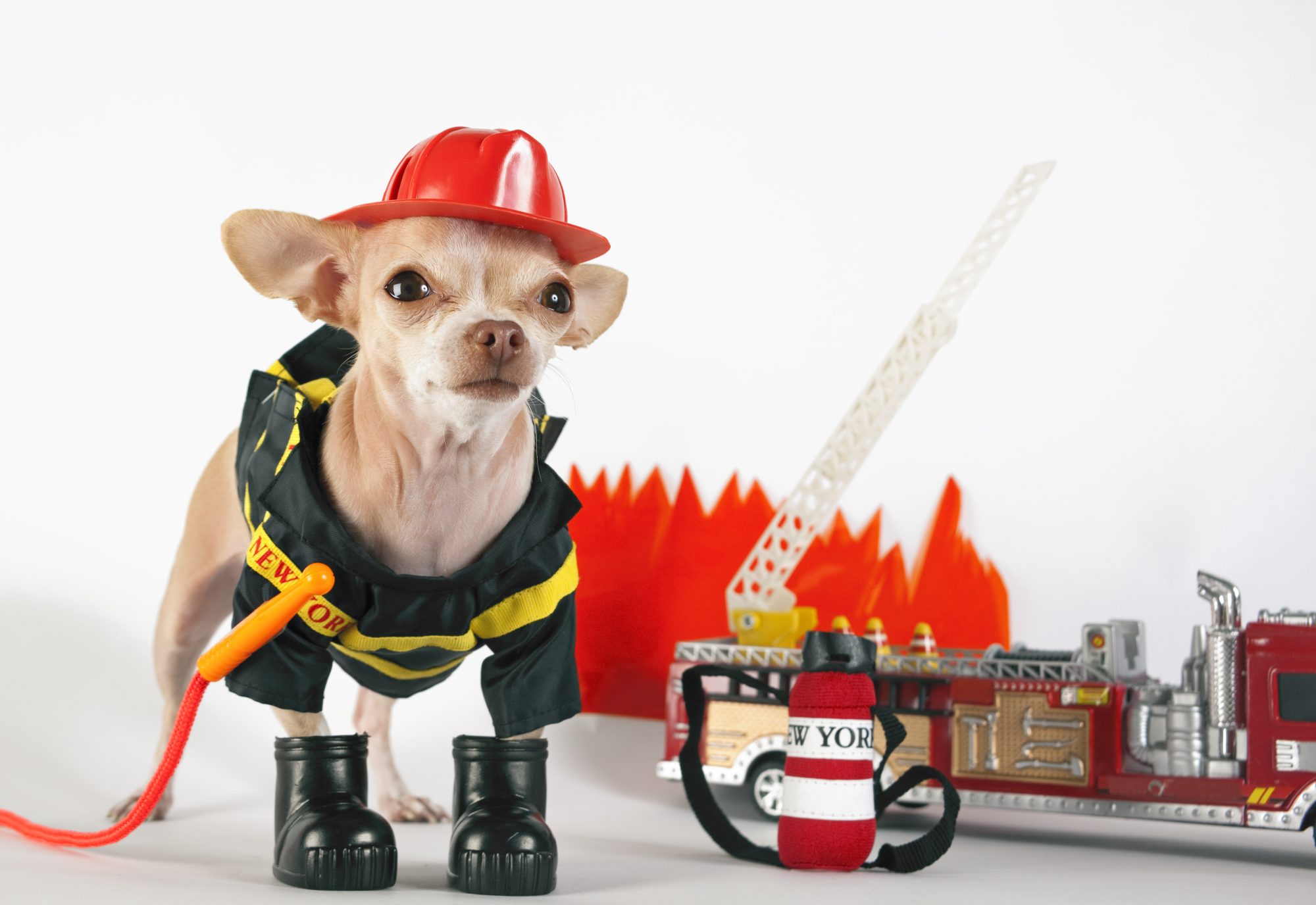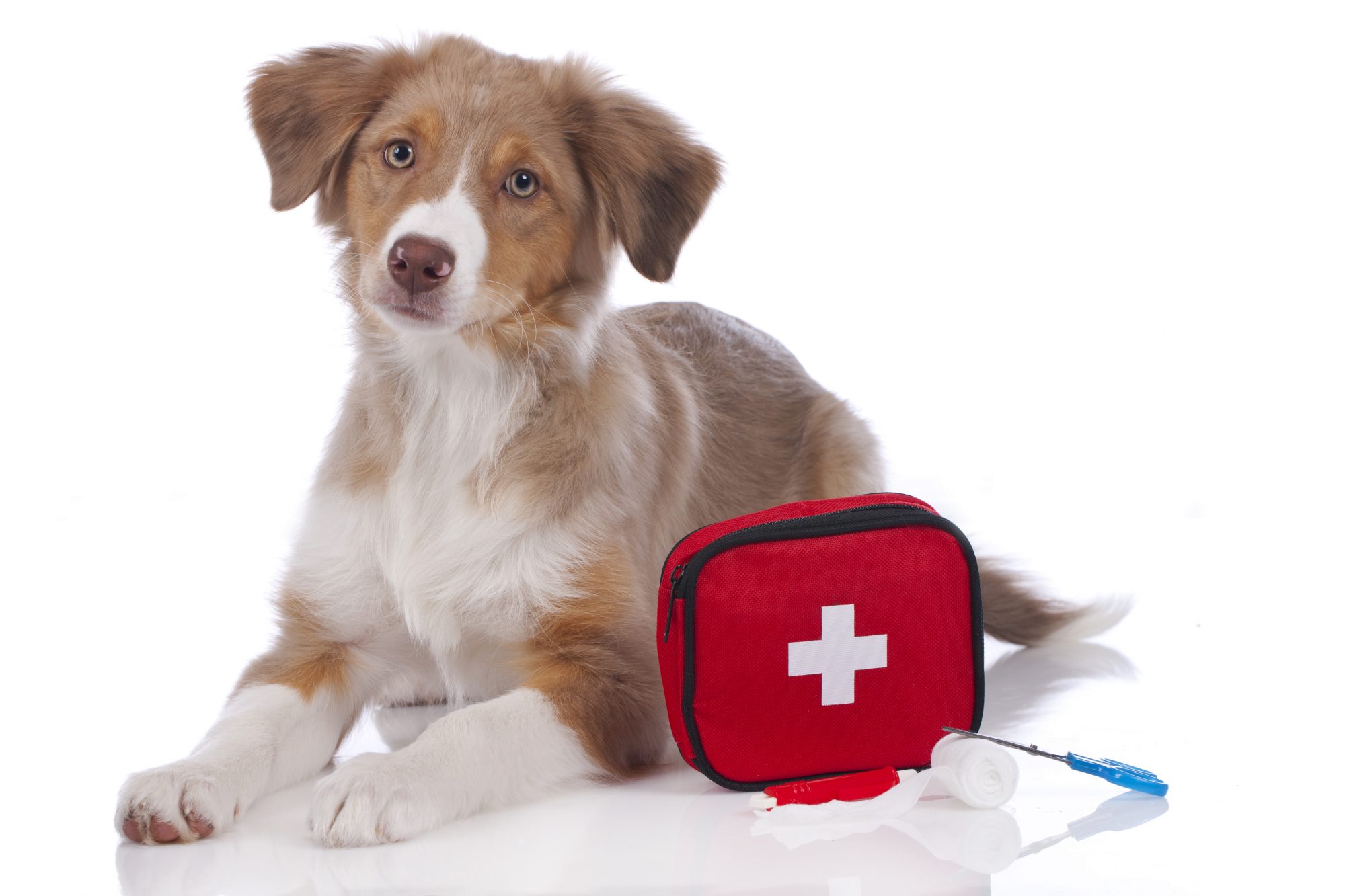Posts in Category: Pet Emergencies
Plan for an Emergency, Ensure Pet Safety

Blizzards, fires, tornadoes, and floods are all things we experience here in Minnesota. While rare, natural disasters aren’t impossible, and planning for the worst is part of an effective defense. In other words, by imagining terrible scenarios, you can prepare for them.
Upholding pet safety is a day-to-day occurrence, and must remain a high priority in the face of life-threatening circumstances.
Continue…How to Be Prepared for a Pet Emergency with Pet First Aid

Most of us don’t want to ever consider an emergency situation with our precious pets, but the fact is, most pets will have some kind of emergency in their lifetime. As a responsible pet owner, though, it is essential to recognize the signs of a veterinary emergency and discern whether it is something minor that can be treated at home or something that needs immediate medical attention. This knowledge is key in getting your pet the help they need quickly when necessary.
Since there are some questions and confusion around pet first aid, the team at The Bluffs Pet Clinic is here to help you always be prepared:
Continue…Don’t Poison Your Pet With Mouse Poison This Summer…..Or Anytime
 It’s summer, and whether you’re at home, the cabin or a resort, mouse and rat poisons are a lethal threat to your pets. Many people believe that it is ok to use as long as it is put out of reach of pets, but here’s why that’s a danger.
It’s summer, and whether you’re at home, the cabin or a resort, mouse and rat poisons are a lethal threat to your pets. Many people believe that it is ok to use as long as it is put out of reach of pets, but here’s why that’s a danger.
People using poison often place it up high (where it can fall off) or in an inconspicuous corner. The problem is, rodents hoard poison and will move it to a favorite spot—like inside an old shoe, or somewhere undisturbed. Either way, your pet can find it and ingest it.
Fortunately, there are ways to kill rodents without risking your pet’s life.The best thing you can do at home or your cabin is to never use poison; use a mouse trap instead. There are many styles available now to suit your needs. BUT, you never know what neighbors or resort owners use for rodent control.
If you’ve got a pet roaming or if you are in a cabin you don’t own, be vigilant and take these precautions:
1. If traveling, get the name, phone number and hours of a vet clinic near your destination. Add it to your phone before you hit the road.
2. When renting a cabin, first ask the owners if they use rodent poison. If they do—consider staying elsewhere, or ask them to remove it before you arrive. (Even then, there’s a chance that poison may be in the vicinity of your pet.)
3. Inspect the cabin when you arrive. Check shelves and inconspicuous places for small boxes of poison such as D-Con, or little nuggets that resemble cat food or are brightly colored. Google “mouse poison photos” to see examples of the many types of poison to watch for. Check outside around the foundation of the cabin as well.
Often times we are completely unaware that our pet has eaten mouse poison. That’s why it’s important to recognize the symptoms before it’s too late.
SYMPTOMS
Here’s where it gets dicey. There are a variety of poisons that kill in a number of ways. That means, symptoms of poisoning vary, depending on the poison. Here’s a list of symptoms to watch out for. Symptoms vary, of course, with the poison.
• Lethargy
• Difficulty breathing
• Pale gums
• Coughing (especially of blood)
• Vomiting (especially with blood)
• Bloody nose
• Swelling or bruising of the skin
• Collapse
• Bleeding from the gums
• Not eating
• Weakness
• Decreased or increased thirst/urination
• Bad breath
• Tremors
• Anxiety
• Walking “drunk”
• Tremoring
• Seizuring
• Coma
• Drooling
If you see any of these symptoms, contact your vet immediately. If caught early, there are antidotes for some poisons. Call The Bluffs Pet Clinic should you have more questions or see any of the above symptoms in your pet.
Dr. Cook is a 1997 graduate of the Wisconsin School of Veterinary Medicine and purchased The Bluffs Pet Clinic in 2001. She is certified in Veterinary Acupuncture and well versed in the use of Chinese Herbs. In her spare time she can be found playing ball with her Golden Retrievers.
Are You Having a Pet Emergency? How to Know When It Can’t Wait
 While it may not seem like rocket science to figure out what is an emergency and what isn’t, oftentimes things are not clear cut.
While it may not seem like rocket science to figure out what is an emergency and what isn’t, oftentimes things are not clear cut.
Next time you are wondering after hours if your pet’s problem can wait until the morning, take a look at our pet emergency reference guide to help decide if you need to seek immediate care.
Recognizing a Pet Emergency
All pet owners should know the deal breakers – those symptoms or situations that fall into the “do not pass go, do not collect $200” category. If your pet is exhibiting any of these symptoms or is affected by any of these conditions, urgent care is essential. Seek emergency care if your pet:
- Has suffered trauma, such as being hit by a car, even if he or she seems fine
- Has bleeding that does not stop within a few minutes
- Has been (or potentially has been) exposed to a toxic substance
- Has eaten a non-digestible object
- Displays symptoms of pain
- Is straining to or cannot urinate
- Is bleeding from an orifice
- Collapses
- Is having trouble with one or both eyes
- Has a seizure
- Appears to have a swollen abdomen
- Has vomiting or diarrhea that occurs more than once
- May have a broken bone
- Is having difficulty breathing
- Is in active labor and has not had a puppy or kitten in 2 hours
By paying close attention to your four-legged family member, you can make yourself familiar with what his or her normal habits are. If your pet isn’t eating or drinking normally, is acting strangely, starts limping, or displays other unusual behavior, it is never wrong to have things checked out. You know your pet best, and if you feel something is wrong, it probably is.
How to Handle a Pet Emergency
If your pet is having some level of emergency, it can certainly be a little scary. Try to take a deep breath and call us right away. We may be able to coach you through stabilizing your pet, or help you determine the level of emergency. For true emergencies, we always appreciate a call to know that you are on the way, so that we can be prepared to help more quickly.
If it occurs outside of our normal business hours, please don’t hesitate to call one of the many wonderful emergency hospitals in the area. They work together with us to bring your family the best veterinary care possible.
It can help to educate yourself a little about pet emergencies in advance of a problem. Make an effort to review some pet emergency care tips. A pet first aid kit can also be handy to have available.
Pets are very good at hiding symptoms of a problem until things become quite serious. This is why it is so important not to wait too long to seek help. Never hesitate to call us at The Bluffs Pet Clinic if you think that there might be a problem. We are always happy to help.

